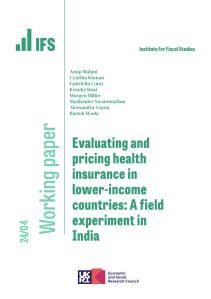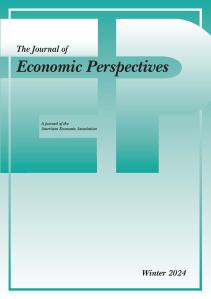The Foreign, Commonwealth and Development Office (FCDO) has announced renewed funding for The Centre for Tax Analysis in Developing Countries (TaxDev) – implemented as part of a collaboration between The Institute for Fiscal Studies (IFS) and ODI.
TaxDev was established in 2016 to support governments in low- and middle-income countries (L&MICs) to develop evidence-based tax policies which help them to achieve their revenue, poverty reduction, and growth objectives. To date, the programme has worked with partners in Tax Policy Units in Ethiopia, Ghana, Rwanda, and Uganda to provide high-quality analysis at critical points in the policymaking process, and increase the demand for, and use of, evidence by senior policymakers. It has also generated important new research on the impact of taxes in L&MICs.
Robust, responsive, evidence-based policy is particularly important during times of uncertainty and crisis. TaxDev’s recent activities have included support for the embedding of systematic policy appraisal and costing in budget processes; in-depth reviews of major taxes (such as customs and VAT); support for the publication of tax expenditure reports to increase transparency around spending through the tax system; and the development of medium-term revenue strategies (MTRSs) to help partner governments to plan and deliver on their longer-term policy priorities.
Complementing the work with partners, TaxDev’s research has sought to answer large policy questions which are core to our broader understanding of how tax systems operate in L&MICs. How might the taxation of formal sector employees in Africa be simpler, fairer, and more progressive?Is the VAT really regressive in the presence of high levels of informality, and could VAT exemptions be better-targeted?How would different households, businesses, and industries be affected by carbon pricing?And how can governments increase property tax revenues without reducing welfare?
Going forward, TaxDev’s work over the next seven years will include:
- An expanded network of partnerships in six countries, and increased emphasis on ensuring the sustainability of data resources, analytical tools, and skills;
- Research at the frontier of the study of public finance in L&MICs, complemented by high-quality analysis of emerging policy issues – for example changes in the global corporate tax system, increasing digitalisation, and the design of environmental taxes;
- Strong linkages between TaxDev and its partners, researchers, and wider tax policy networks to maximise the impact of training tools, resources, and research.
Paul Johnson, IFS Director, said:
“Through our collaboration with ODI on TaxDev, IFS has worked with partner governments to build evidence and improve policymaking through a mix of developing skills, building modelling tools, and undertaking joint policy analysis. We’re delighted that the FCDO will continue to fund this work alongside fundamental research on tax policy and administration in low- and middle-income countries. TaxDev will help governments to respond better to current fiscal challenges, and to build more robust tax systems in future.”
Sara Pantuliano, Chief Executive of ODI, said:
“It is crucial that governments in low- and middle-income countries find fairer and more efficient ways to raise tax revenues to invest in their development goals and social protection systems. This is central to our agenda at ODI, and we are looking forward to continuing our close collaboration with IFS on TaxDev, and working with our partners to support informed, evidence-based policy. This additional funding will help us strengthen our existing partnerships with TaxDev researchers and the governments of Ethiopia, Ghana, Rwanda, and Uganda, and expand our network to two further countries. We are grateful to the FCDO for their continued support for this important work."








